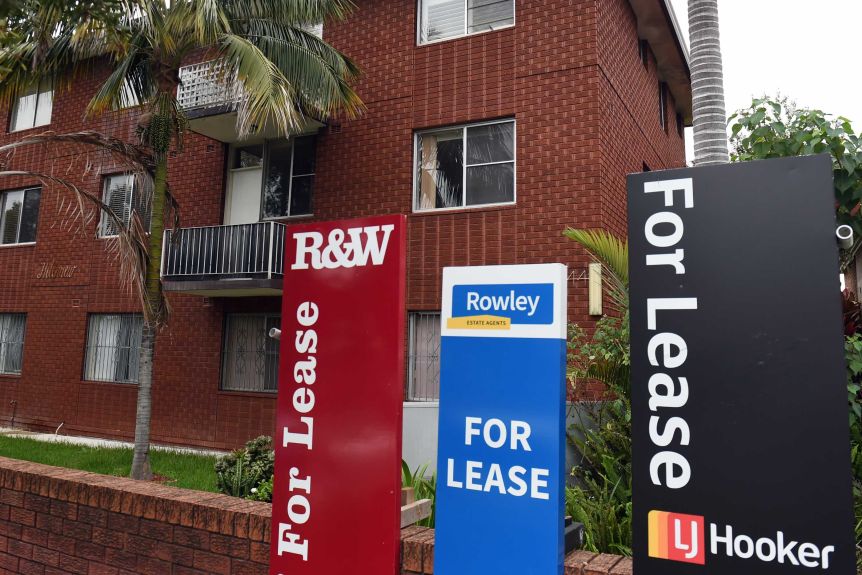There are so many changes to our environment and one of the largest changes to impact landlords with covid-19 is the evictions moratorium which was introduced to protect tenants- but it doesn’t mean that all tenants now can reduce their rent or refuse to pay at all.
The moratorium was announced by the Federal Government and implemented by the NSW government on 15 April for an interim 60 day stop on all evictions for rental arrears where the renting household has been financially impacted by COVID-19 (losing 25% of their household income during COVID-19) and after this, restrictions on evictions for rental arrears for COID-19 impacted tenants will apply for 6 months.

For Landlords, they can only apply for eviction for rental arrears if they can show:
- An attempt to negotiate a rent reduction with the tenant in good faith
- The landlord and tenant have attempted mediated rent reduction negotiations through fair trading dispute resolution process
- And that the eviction is fair and reasonable in the circumstances of the specific case.
But, as a landlord there has been little advice, or next to none, on what to actually do if you find yourself with a tenant who can not afford to pay rent.
So, what should you do if you find yourself with a tenant that can’t pay the rent?
“Firstly, you should try to work with your tenant to understand the reasons behind why they can not pay the rent. Are they really experiencing financial hardship? Have they lost their job entirely, or have just their hours been reduced? Do they run a small business and have ongoing expenses but no income coming in? If you understand the situation your tenant is in, it is easier for you to work together. There may be other avenues for your tenant to explore before they stop paying the rent entirely. They may not have considered applying for Government assistance- such as job seeker, or small business assistance which is available.” Says Lloyd Edge, Author of Positively Geared.
Lloyd says “Before the tenant stops paying the rent, see whether they have expenses they are able to defer such as requesting deferred tax payments from the ATO, or seeing whether they can defer car loan repayments. Definitely work with your tenants and if they could manage a rental reduction out of goodwill rather than not paying rent altogether, because you also don’t want to lose a good tenant and have a vacant property.

But don’t let your tenants take you for a ride.
Tenants just can’t stop paying rent for no reason. I have seen a few tenants try to take advantage of the moratorium or they just don’t completely understand it. They think it means they don’t have to pay rent, or can ask for a rent reduction. You also have the right to ask for proof that they aren’t able to pay rent, such as seeing bank statements that they have tried to reduce their outgoings.
Your tenants really shouldn’t be buying takeaway coffee and UberEats and then telling you they can’t afford to pay rent.”
Your property manager should be able to request your tenant to prove they have reduced expenses, and have really made an effort to pay the rent. Your tenant should be able to prove they haven’t been excessively spending on takeaway or sending gifts. They should also show they have suspended or cancelled subscriptions such as Stan, Netflix, and Foxtel and also have email proof showing they have tried to suspend their tax and loan repayments. The best thing for everyone to do is be open and honest about their situation and for landlords and tenants to work together and come to an agreement. There is no “one size fits all” approach to this because each situation and circumstance is unique.
What should you do if your tenant needs to stop paying the rent?
There is a raft of provisions available for Landlords to assist them if they find their tenants are genuinely in financial hardship and can’t afford the rent.
You should firstly contact your lender and see what support they are able to provide. The big four banks have announced support packages to freeze loan repayments for up to six months, some with a review after 3 months.
Most lenders will already have existing financial hardship policies in place for deferral in loan repayments, or a “repayment holiday”.
“If you find yourself negotiating with your tenant for a rent reduction, you can see whether you can get a better deal by refinancing the loan for your investment property. Some lenders may allow you to switch your principal and interest loan to interest only if you meet certain criteria. This is assessed on a case by case basis by lenders but switching your loan from principal and interest to interest only means your outgoings on the loan will be reduced to help cover the decrease in rental income but you will not be reducing your loan balance but this may ease some of the financial pressure for you in the short term until we see the other side. Another option would be to speak to your insurance provider and see whether the conditions of your landlords insurance covers you for loss of rent and whether your situation meets the criteria under the terms of your policy.” Says Lloyd.

How a positively geared property can assist in times of crisis.
Lloyd advises “No one could have predicted the coronavirus pandemic which has impacted so much financial hardship, and redefined the way the Real Estate industry conducts business. As investors, this has really highlighted why a positively geared property portfolio can protect you when the unforeseen arises. With a positively geared portfolio, this means that once the mortgage repayments are made and outgoings are paid for, you still have a bit of money leftover collected from your rental income. During times like we are experiencing, this extra bit of cash can be put towards your own home’s mortgage and assist you with your own mortgage repayments. It can also help you to meet the bills, and put food on the table if you’ve lost some of your household income due to the coronavirus. What’s most important to me is the “sleep at night factor” meaning you don’t want to be up at night worrying where you’re going to find the money from to be able to cover your bills. Property investors who have positively geared their property portfolio are less worried about having to give rental reductions to their tenants, or covering their own household expenses.”
Written by Renee Edge,
Associate
Aus Property Professionals
Want to know more?
Lloyd released his debut book ‘Positively Geared’ which is available to purchase at Amazon – click here to grab your copy today!
You can also follow Lloyd’s podcast series “Positively Geared” now available on Apple – click here to tune-in.
If you are looking for a buyer’s agent to assist you with purchasing a home or investment property in the Sydney, Brisbane and Newcastle regions, please get in touch with Lloyd Edge and his team at Aus Property Professionals here or give us a call on 1800 146 837!
Would you like to receive FREE property market updates and helpful tips on property investing?
